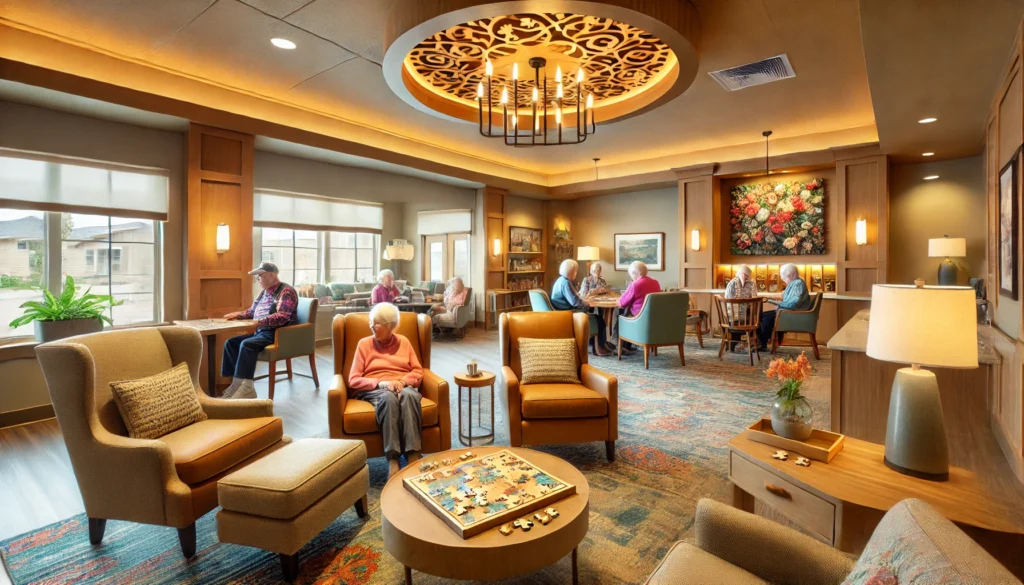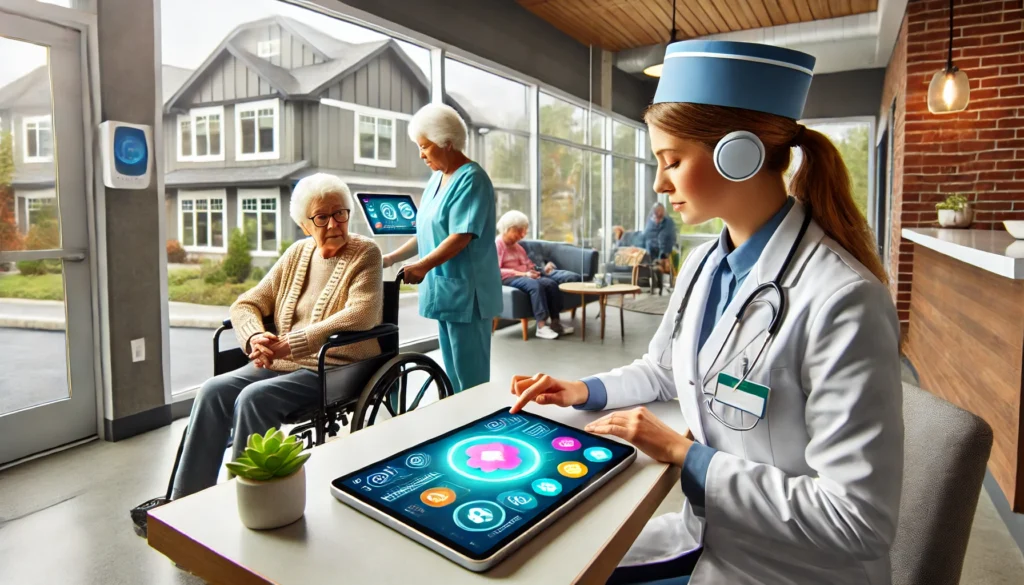Memory care refers to specialized services designed to meet the needs of individuals suffering from memory impairments, including Alzheimer’s disease and other forms of dementia. These services aim to create a supportive environment that promotes dignity, engagement, and quality of life for residents.
You may also like: Finding Local Specialists for Memory Loss
Historical Context
The evolution of memory care has been shaped by an increased understanding of cognitive disorders. Historically, individuals with dementia were often placed in general nursing homes, where their specific needs may not have been adequately met. Over the decades, the development of specialized memory care units has shifted the focus toward tailored care environments, highlighting the importance of safety, specialized staff training, and personalized care plans.
Early Approaches to Dementia Care
In the early 20th century, dementia care was often rudimentary, with little understanding of the specific needs of those affected. Patients were typically housed in asylums or hospitals, receiving minimal engagement or specialized care. This lack of understanding led to a standardized approach, treating all mental health conditions similarly, without regard for the unique challenges posed by cognitive decline.
The Shift Towards Specialized Units
The mid to late 20th century saw a growing recognition of the need for specialized dementia care. This period marked the beginning of dedicated memory care units, emphasizing the importance of trained staff and environments designed to meet the unique needs of those with memory impairments. The focus began to shift from merely housing individuals to providing comprehensive, person-centered care that addressed both physical and cognitive needs.
Development of Modern Memory Care Practices
Today, memory care practices have evolved to incorporate a deep understanding of the neurological and emotional aspects of cognitive decline. Modern memory care facilities are designed with the latest research in mind, creating environments that reduce stress and confusion while promoting engagement and well-being. The integration of therapeutic activities and personalized care plans has become a standard in the industry.
Current Trends in Memory Care
Current trends in memory care emphasize person-centered approaches, integrating technology, and enhancing community involvement. In Tacoma, facilities are increasingly adopting evidence-based practices to improve resident outcomes.
Person-Centered Care Initiatives
Person-centered care prioritizes the unique preferences, histories, and abilities of each individual. Care plans are developed to engage residents in meaningful activities that align with their interests and capabilities. This approach fosters a sense of purpose and belonging, which is crucial for maintaining cognitive function and emotional well-being.
Technological Innovations in Care
The use of technology in memory care is on the rise, with digital monitoring systems ensuring safety and cognitive training programs aiming to slow cognitive decline. Virtual reality is being explored for reminiscence therapy, allowing residents to relive positive experiences and stimulate memory. Additionally, smart home technologies are enhancing security and independence for residents.
Community Engagement and Awareness
Many memory care facilities in Tacoma are fostering connections with the wider community. This not only enriches the lives of residents but also raises awareness about dementia and reduces the stigma associated with cognitive impairments. Community programs and partnerships with local organizations help integrate residents into society, promoting inclusivity and understanding.

Types of Memory Care Facilities in Tacoma
When exploring memory care options in Tacoma, it is crucial to understand the different types of facilities available and the services they offer.
Assisted Living with Memory Care
These facilities provide a combination of housing, personalized supportive services, and healthcare designed to promote maximum independence. Memory care units within these facilities offer secure environments with specialized staff trained to manage the unique challenges associated with memory loss.
Housing and Support Services
Assisted living facilities with memory care units typically offer private or semi-private accommodations designed to feel homely and safe. Support services include assistance with daily activities, such as bathing, dressing, and medication management, tailored to the individual’s needs and preferences.
Healthcare and Therapeutic Services
Residents in assisted living memory care units have access to healthcare services, including routine medical care and emergency response. Therapeutic services, such as physical and occupational therapy, are often available to enhance residents’ quality of life and maintain their physical health.
Staff Training and Expertise
Staff in these facilities undergo specialized training to understand and address the complex needs of individuals with memory impairments. This includes techniques for managing behavioral symptoms, communication strategies, and providing compassionate, patient-centered care.
Dedicated Memory Care Communities
These communities are designed exclusively for individuals with memory impairments. They offer structured routines and activities tailored to cognitive abilities, ensuring a supportive and stimulating environment for residents.
Environment and Design
Dedicated memory care communities are often designed with the specific needs of dementia patients in mind. Features such as circular walking paths, secured outdoor spaces, and visual cues help minimize confusion and promote autonomy.
Structured Daily Activities
Residents benefit from structured daily activities that provide routine and predictability, which are essential for reducing anxiety and promoting engagement. Activities may include music therapy, art classes, and group exercises, all tailored to different cognitive levels.
Family Involvement and Support
Family involvement is encouraged, with many communities offering support groups and educational resources. This helps families understand the progression of dementia and how best to support their loved ones.
In-Home Memory Care Services
For those who prefer to remain in their own homes, in-home memory care services provide professional care and support tailored to the individual’s needs. This option can include personal care, medication management, and cognitive therapies.
Personalized In-Home Care Plans
In-home memory care services begin with an assessment to create a personalized care plan. This plan addresses the individual’s needs, preferences, and routines, ensuring consistency and comfort in familiar surroundings.
Benefits of Staying at Home
Staying at home can provide a sense of security and continuity for individuals with cognitive impairments. Familiar environments can reduce confusion and anxiety, while personalized care ensures that specific needs are met without the stress of relocation.
Support for Caregivers
In-home memory care services also offer support for family caregivers, providing respite and guidance. This support is crucial in preventing caregiver burnout and ensuring the well-being of both the caregiver and the individual receiving care.
Evaluating Memory Care Options
When evaluating memory care options in Tacoma, several factors should be considered to ensure the best fit for the individual and their family.
Staff Training and Expertise
Qualified and compassionate staff are the cornerstone of effective memory care. It is vital to inquire about staff training programs, their experience with dementia care, and the staff-to-resident ratio.
Importance of Specialized Training
Staff should receive ongoing training in dementia care, including the latest techniques for managing symptoms and enhancing communication. This ensures that they are equipped to handle the challenges of memory care with empathy and expertise.
Staff-to-Resident Ratios
The staff-to-resident ratio is an important consideration, as it impacts the level of personalized attention each resident receives. Facilities with lower ratios often provide more individualized care, which can significantly enhance the quality of life for residents.

Continuous Professional Development
Facilities that prioritize continuous professional development for their staff demonstrate a commitment to high-quality care. Regular training updates ensure that staff remain informed about the latest research and best practices in memory care.
Safety and Security Measures
Memory care facilities should have robust safety measures in place to prevent wandering and ensure resident security. This includes secured entrances and exits, emergency response systems, and regular safety audits.
Environmental Safety Features
Environmental safety features, such as non-slip flooring, handrails, and secured outdoor areas, are essential in preventing accidents and promoting independence. These features help create a safe and accessible environment for residents.
Technology-Enhanced Security
Many facilities are integrating technology to enhance safety, including motion sensors, GPS tracking, and automated alerts. These technologies help monitor residents’ movements and ensure quick response in case of emergencies.
Emergency Preparedness
Emergency preparedness is a critical aspect of memory care. Facilities should have clear emergency protocols, regular drills, and communication systems in place to ensure resident safety during unforeseen events.
Personalized Care Plans
Each resident should have a personalized care plan that addresses their specific needs, preferences, and abilities. This plan should be regularly reviewed and updated to reflect any changes in the resident’s condition.
Assessment and Plan Development
The development of a personalized care plan begins with a comprehensive assessment of the resident’s cognitive, physical, and emotional needs. This assessment informs the creation of a tailored plan that promotes well-being and engagement.
Regular Review and Adaptation
Care plans should be dynamic, with regular reviews to adapt to the resident’s changing needs. This ensures that the care provided remains relevant and effective, enhancing the resident’s quality of life.
Family and Resident Involvement
Involving residents and their families in the care planning process is crucial for ensuring that the plan reflects their values and preferences. This collaborative approach fosters trust and ensures that care aligns with the resident’s goals and lifestyle.
Engagement and Activities
Engagement in meaningful activities is crucial for maintaining cognitive function and enhancing quality of life. Facilities should offer a variety of programs that cater to different interests and cognitive levels.
Cognitive Stimulation Programs
Cognitive stimulation programs, such as memory games, puzzles, and brain-training exercises, are essential for maintaining cognitive abilities. These programs provide mental challenges that promote neural health and slow cognitive decline.
Social and Recreational Activities
Social and recreational activities, such as group outings, music therapy, and art classes, foster social interaction and emotional well-being. These activities provide opportunities for residents to connect with others and engage in enjoyable pastimes.
Tailored Activity Options
Activities should be tailored to the individual interests and abilities of residents, ensuring that everyone can participate meaningfully. This personalized approach encourages engagement and provides a sense of accomplishment and satisfaction.
Future Implications and Advancements in Memory Care
As research and technology continue to advance, the future of memory care holds exciting possibilities. Emerging trends include the use of virtual reality for reminiscence therapy, artificial intelligence to predict and manage behavioral changes, and innovative architectural designs that mimic familiar home environments to reduce confusion and anxiety.
Virtual Reality and Reminiscence Therapy
Virtual reality is emerging as a powerful tool for reminiscence therapy, allowing residents to revisit past experiences and stimulate memory. This technology provides immersive experiences that can evoke emotions and memories, enhancing cognitive engagement and emotional well-being.
Artificial Intelligence in Care Management
Artificial intelligence is being developed to assist in predicting and managing behavioral changes in residents. AI systems can analyze patterns and provide insights into potential triggers, enabling proactive management of symptoms and improving overall care quality.
Innovative Architectural Designs
Innovative architectural designs are being explored to create environments that mimic familiar home settings, reducing confusion and anxiety for residents. These designs incorporate elements such as personalized living spaces, sensory gardens, and therapeutic landscapes to promote comfort and well-being.

Conclusion
Exploring memory care options in Tacoma involves understanding the unique needs of individuals with cognitive impairments and the specialized services available to meet those needs. By considering historical context, current trends, and future advancements, health and wellness coaches, science journalists, and biohackers can provide valuable insights and support to individuals and families navigating the complexities of memory care.
This comprehensive overview of memory care in Tacoma highlights the importance of personalized, evidence-based approaches to improve the quality of life for residents and their families. As the field continues to evolve, staying informed about the latest developments and best practices will be crucial for those dedicated to enhancing the well-being of individuals with memory impairments.
Further Reading:
Enjoy More at Merrill Gardens at Tacoma
Important Note: The information contained in this article is for general informational purposes only, and should not be construed as health or medical advice, nor is it intended to diagnose, prevent, treat, or cure any disease or health condition. Before embarking on any diet, fitness regimen, or program of nutritional supplementation, it is advisable to consult your healthcare professional in order to determine its safety and probable efficacy in terms of your individual state of health.
Regarding Nutritional Supplements Or Other Non-Prescription Health Products: If any nutritional supplements or other non-prescription health products are mentioned in the foregoing article, any claims or statements made about them have not been evaluated by the U.S. Food and Drug Administration, and such nutritional supplements or other health products are not intended to diagnose, treat, cure, or prevent any disease.


